The first president of the Russian Federation, Boris Yeltsin, was born 81 years ago today. He came to power during a difficult and momentous period in his country’s history.
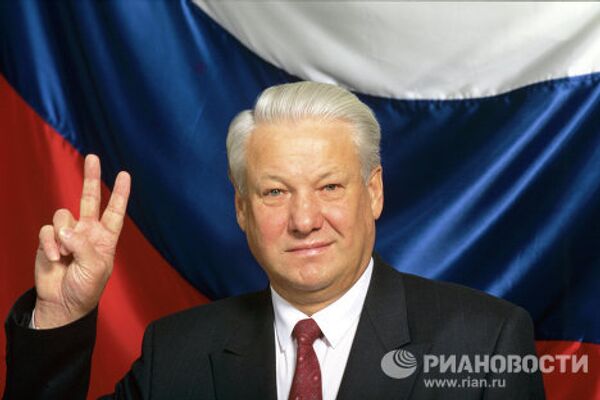
On June 12, 1991, Boris Yeltsin was elected President of the Russian Soviet Federated Socialist Republic (RSFSR) in a first ever national presidential election, beating the official candidate, Nikolai Ryzhkov, by 57.30% to 16.85%.
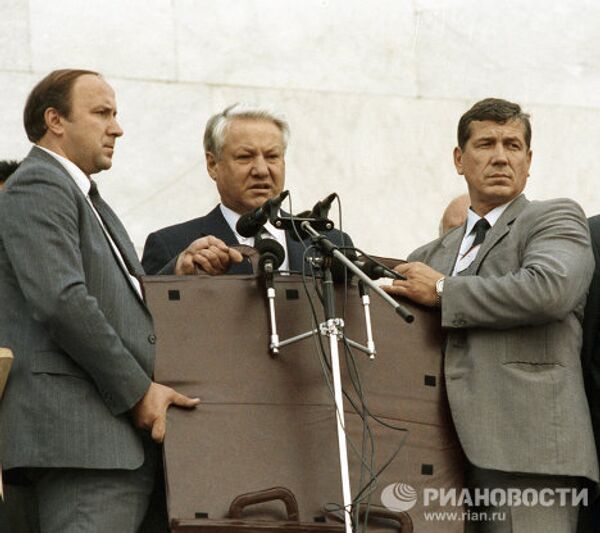
On August 19, 1991, the State of Emergency Committee was set up in Russia, while Mikhail Gorbachev was isolated at his villa in the Crimea. These events became known as
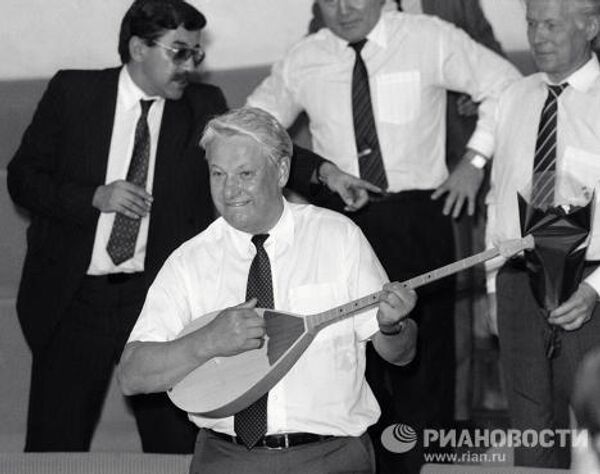
Following the August events, Mikhail Gorbachev began to lose his hold on power, with the levers of control increasingly being appropriated by Yeltsin and the heads of the constituent republics. Photo: President Boris Yeltsin of the Russian Federation during an official visit to Kazakhstan in 1991.
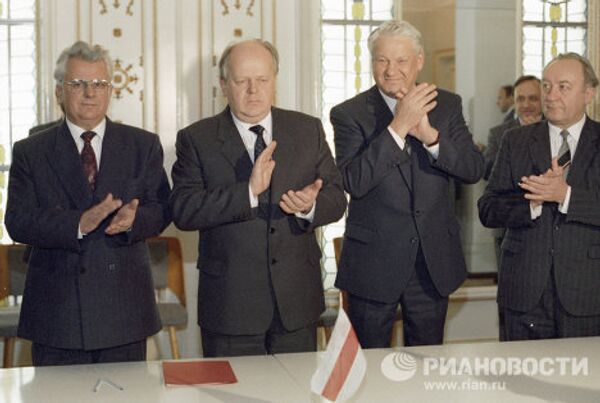
On December 8, 1991, in Bialowieza Forest, Ukrainian President Leonid Kravchuk (left), Chairman of the Supreme Soviet of Belarus Stanislav Shushkevich (center), and Russian President Boris Yeltsin signed an agreement on the establishment of the Commonwealth of Independent States.
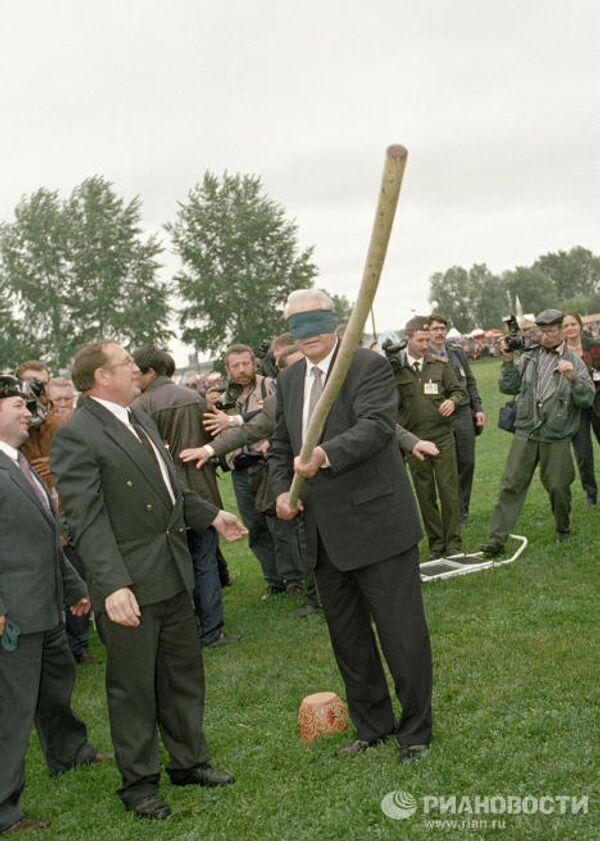
Viktor Chernomyrdin confessed in one of his interviews that he had asked Yeltsin after the December 1991 events, if he would have allowed “the USSR’s disintegration?” Yeltsin, he said, replied, “Never in a million years!” Photo: Russian President Boris Yeltsin attending the Sabantuy festival during a visit to Tatarstan in June 1991.
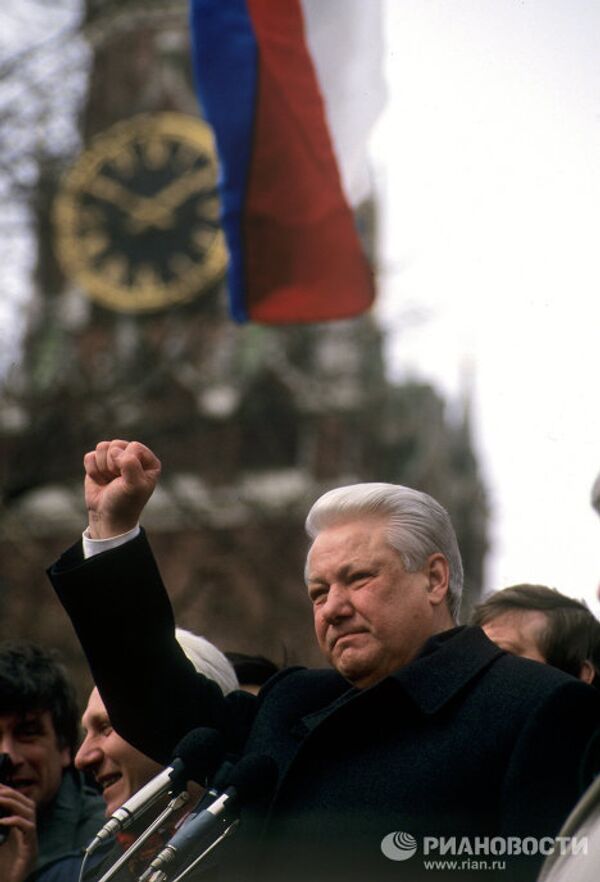
On December 10, 1992, Boris Yeltsin lashed out at the Congress of People’s Deputies and made an attempt to obstruct its work, thereby causing a political crisis. On March 28, 1993, the Congress held an impeachment vote but only 617 deputies out of 1,033 voted for his dismissal, falling short of the required 689 votes.
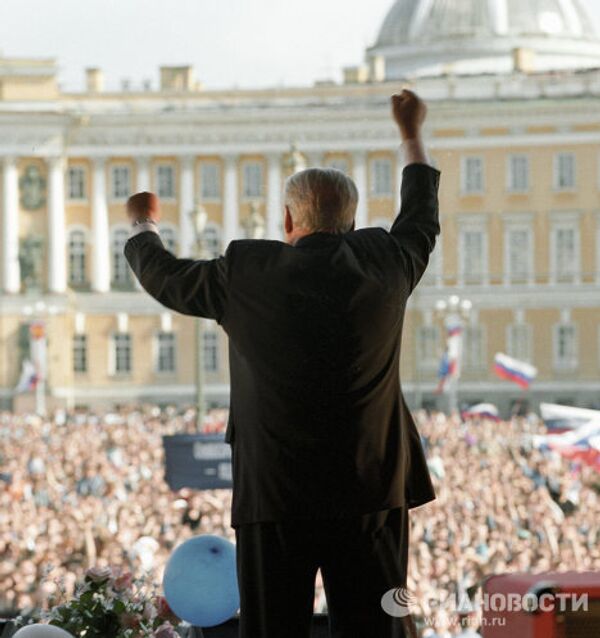
His first presidential term was a trying period. By early 1996, economic blunders and the war in Chechnya sent his popularity ratings plummeting to 3%. But he decided to run for president again and embarked on an extensive program of travel.
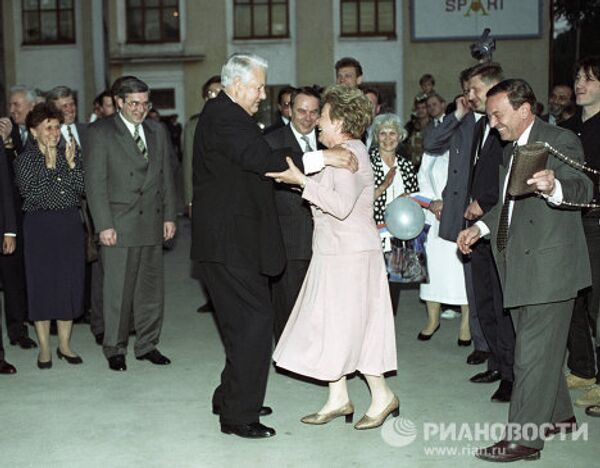
Yeltsin’s election staff launched a hectic propaganda campaign under the motto “Vote or lose!”
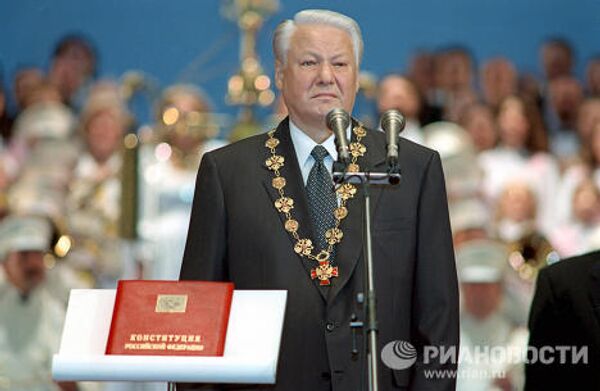
Boris Yeltsin won 35.28% of the votes on June 16, 1996, against Gennady Zyuganov’s 32.03%. The second round of voting on July 3, 1996, brought him 53.82% of the vote.
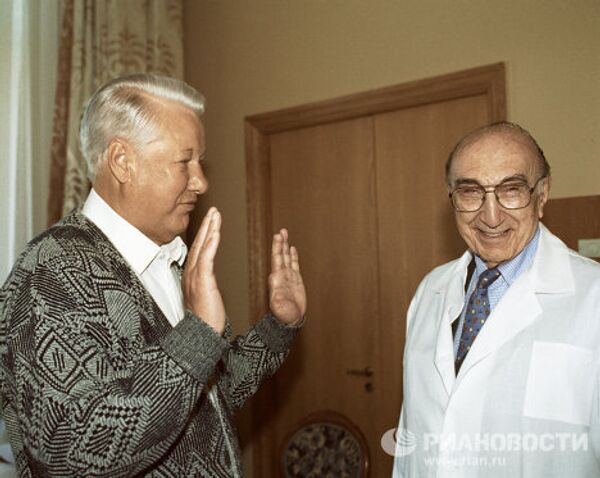
Yeltsin Fell ill after the election and rarely appeared in public. On November 5, 1996, he had heart surgery, with Viktor Chernomyrdin filling in for him as president.
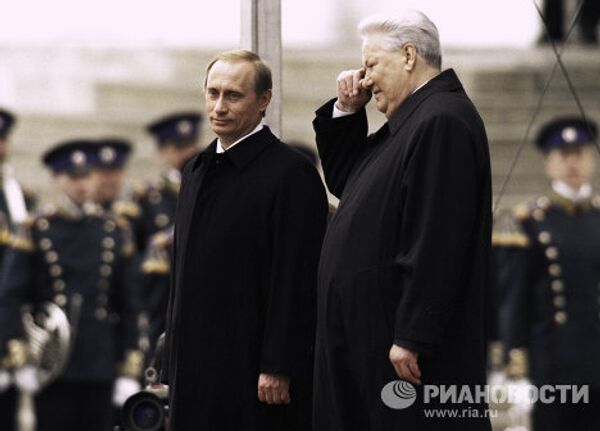
11/12
© RIA Novosti . Vladimir Viatkin
On December 31, Boris Yeltsin appointed Vladimir Putin as acting president. Some people had known that Putin would become prime minister and later acting president as early as the summer of 1999.
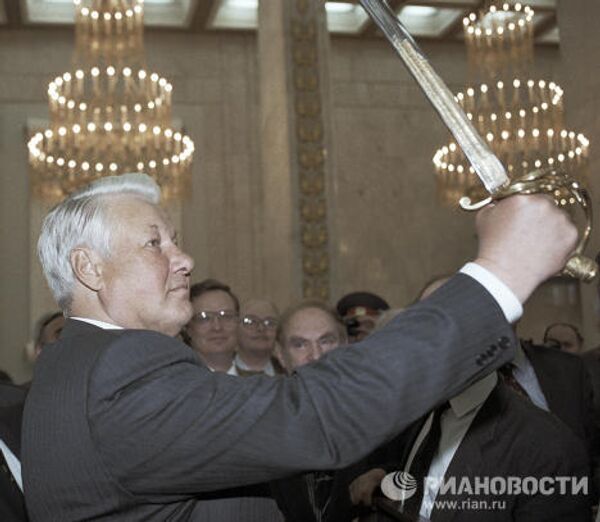
Boris Yeltsin died of heart failure in the Central Clinical Hospital on April 23, 2007.

